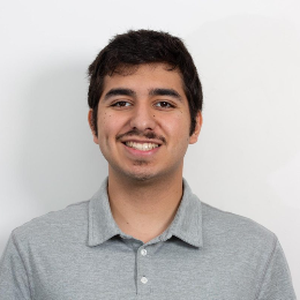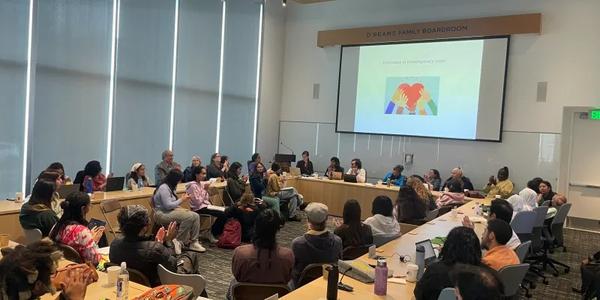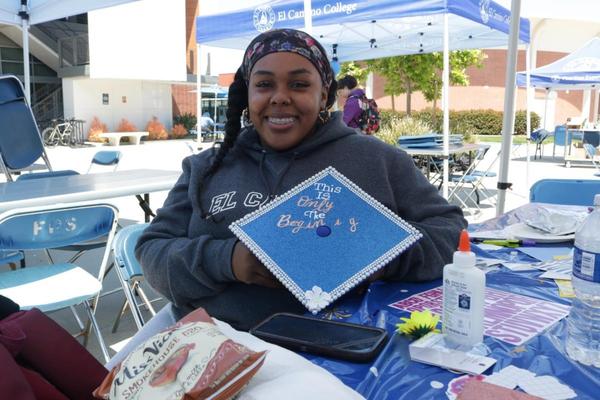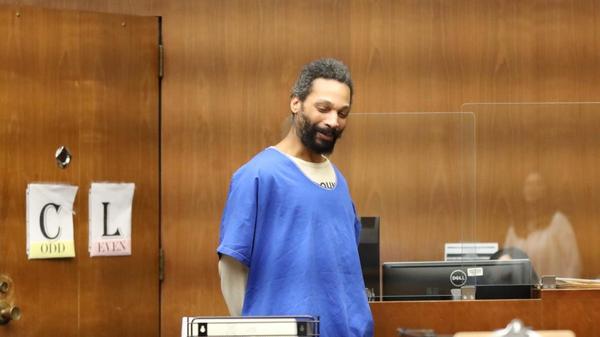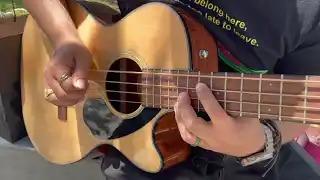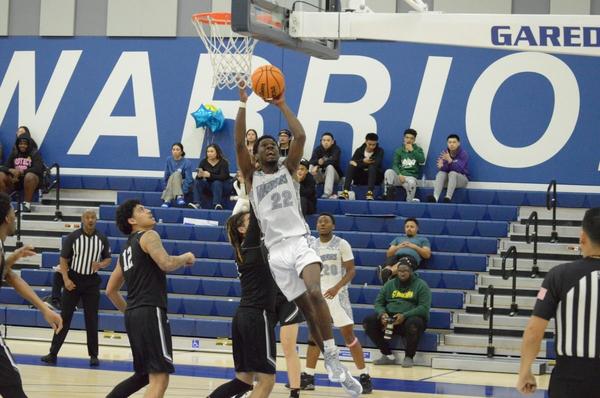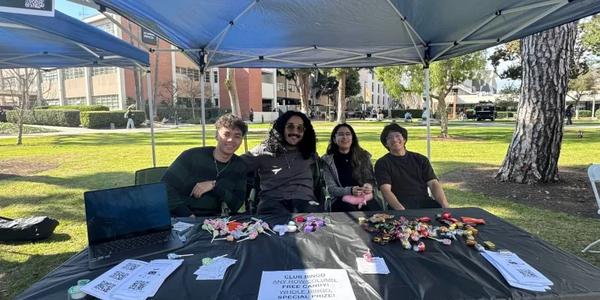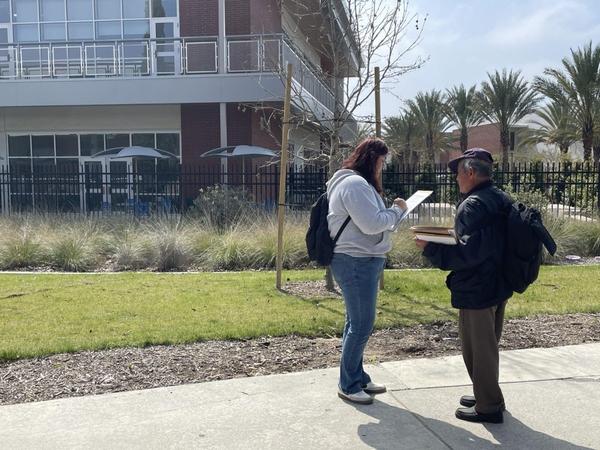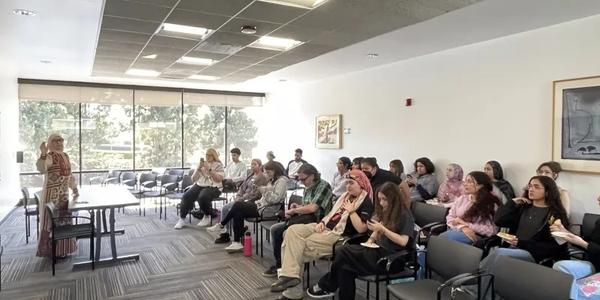
MENA Awareness Month kicks off with Syrian culture exhibit
The “A Country Called Syria” exhibit marked the beginning of Middle Eastern and North African Cultural Awareness Month at Long Beach State, showcasing items of Syrian life on April 8.
A Country Called Syria, a nonprofit traveling museum and art collection founded by Maria Khani, showcases furniture, clothing, utensils, art and other cultural items from Syria.
This month, the exhibit is on display at the University Student Union’s art gallery on the first floor.
Khani started the organization partly to address misconceptions about Syria and Syrians, aiming to bridge the gap between perceptions and reality.
“People don’t know the history — people have fear. Syria was always a red-flag of a country — because they don’t know the people of Syria,” Khani said. “So I felt like the more you educate, the more you know — the less you fear. When people got to know more about Syria, they didn’t know that it has a rich history.”
Khani started doing exhibits in June 2013 for ACCS at the Huntington Beach Library, where items were collected from homes and printed, then laminated for display on tables.
Now, ACCS travels to universities including the University of California, Berkeley, California State University, Fullerton and Long Beach State to showcase a curated selection of its more than 600 items at themed exhibits.
“ACCS founders are friends I have known for a while. I also taught at Cal State Fullerton, and so I would take my students to the exhibit when it was there,” Jessica Moss, assistant director of the Interfaith Programs, said. “So when I was tasked with doing MENA Heritage Month, that allowed me to invite them to set up their exhibit.”
The exhibit displays Syrian furniture along with copper and brass art. In the center of the table is a model of Syria with all the items being made and imported from Syria. Photo credit: Joshua Flores
Moss advocated for April, which is recognized as National Arab American Heritage Month, to be called MENA Cultural Awareness Month and given the same recognition as other heritage month celebrations.
Lavinia Badrous, a third-year student and MENA Student Association president, also pushed for the establishment of MENA Heritage Month at CSULB to bring awareness to the communities and their heritage.
“We advocated for a MENA month and we were able to do that through the Interfaith Programs, and all the faculty helped us, reached out to people and got all the events,” Badrous said. “We’re just trying to create community, and we do a lot of cultural and educational events—we’re inviting for everyone. You don’t have to be Middle Eastern.”
This is the first semester the MENA Student Association has been active on campus, according to Badrous.
In collaboration with the Interfaith Programs at CSULB, several events throughout the month will focus on either Arab heritage, such as the ACCS exhibit, or Middle Eastern and North African heritage, planned by the association to celebrate both groups.
“I can tell you one thing about Syria: everywhere you go, you will find history. The land will talk, the street will talk, the buildings will talk,” Khani said. “There is a big history in Syria, and I want to preserve this for the young generation and for people to know more about it.”
MENA Cultural Awareness Month will continue to have events through April 23, with the ACCS exhibit being displayed for the entire month.
A Country Called Syria, a nonprofit traveling museum and art collection founded by Maria Khani, showcases furniture, clothing, utensils, art and other cultural items from Syria.
This month, the exhibit is on display at the University Student Union’s art gallery on the first floor.
Khani started the organization partly to address misconceptions about Syria and Syrians, aiming to bridge the gap between perceptions and reality.
“People don’t know the history — people have fear. Syria was always a red-flag of a country — because they don’t know the people of Syria,” Khani said. “So I felt like the more you educate, the more you know — the less you fear. When people got to know more about Syria, they didn’t know that it has a rich history.”
Khani started doing exhibits in June 2013 for ACCS at the Huntington Beach Library, where items were collected from homes and printed, then laminated for display on tables.
Now, ACCS travels to universities including the University of California, Berkeley, California State University, Fullerton and Long Beach State to showcase a curated selection of its more than 600 items at themed exhibits.
“ACCS founders are friends I have known for a while. I also taught at Cal State Fullerton, and so I would take my students to the exhibit when it was there,” Jessica Moss, assistant director of the Interfaith Programs, said. “So when I was tasked with doing MENA Heritage Month, that allowed me to invite them to set up their exhibit.”
The exhibit displays Syrian furniture along with copper and brass art. In the center of the table is a model of Syria with all the items being made and imported from Syria. Photo credit: Joshua Flores
Moss advocated for April, which is recognized as National Arab American Heritage Month, to be called MENA Cultural Awareness Month and given the same recognition as other heritage month celebrations.
Lavinia Badrous, a third-year student and MENA Student Association president, also pushed for the establishment of MENA Heritage Month at CSULB to bring awareness to the communities and their heritage.
“We advocated for a MENA month and we were able to do that through the Interfaith Programs, and all the faculty helped us, reached out to people and got all the events,” Badrous said. “We’re just trying to create community, and we do a lot of cultural and educational events—we’re inviting for everyone. You don’t have to be Middle Eastern.”
This is the first semester the MENA Student Association has been active on campus, according to Badrous.
In collaboration with the Interfaith Programs at CSULB, several events throughout the month will focus on either Arab heritage, such as the ACCS exhibit, or Middle Eastern and North African heritage, planned by the association to celebrate both groups.
“I can tell you one thing about Syria: everywhere you go, you will find history. The land will talk, the street will talk, the buildings will talk,” Khani said. “There is a big history in Syria, and I want to preserve this for the young generation and for people to know more about it.”
MENA Cultural Awareness Month will continue to have events through April 23, with the ACCS exhibit being displayed for the entire month.
